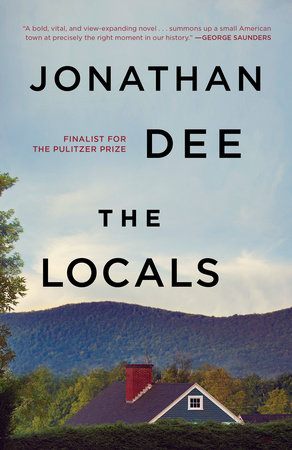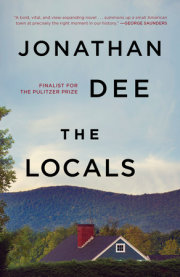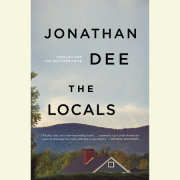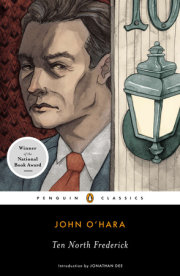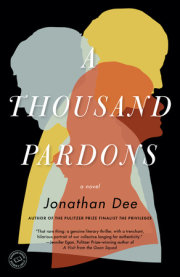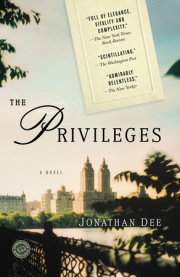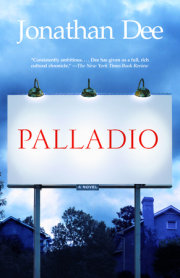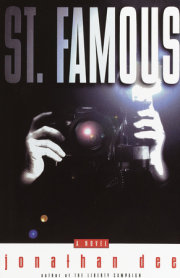Ø
They were saying that all appointments were canceled, indefinitely, that it was the end of everything, but why would they assume that? The subway was running again, for example, parts of it. So people must have been going places, meeting other people. So there were still meetings. So maybe my meeting was still on. I found the lawyer’s card and tried to call his office, but cell service was fucked, still, after like a day. I didn’t know what to do. I couldn’t even ask Yuri for advice, because the phones. What if this meeting was still happening and I wasn’t there? What if everybody showed but me? The lawyer had stressed over and over how important it was that I not miss it. Nobody’d told me it was canceled, technically, according to the letter of the law or whatever. So I put on my shoes. It didn’t start for a few hours yet, but I had nothing to do, and there was fuck-all on TV that day, that’s for sure.
Broadway was frozen, like a screenshot. Nobody on the street. It was cool at first, actually, having it all to yourself like that, like one of those end-of-the-world movies. But then I saw an empty bus with its doors open just sitting in the middle of an intersection, and I started to feel a little creeped out, so I cut west into the park. Saw people there, at least, a few people out with their dogs, just standing there like drugged lunatics while the dogs chased each other around the grass. Then further on I could hear voices, loud voices. There’s this playground in that part of Riverside, at the bottom of a steep hill, all fenced in. And that’s where everybody was, it looked like the whole West Side in this little enclosed playground. It was packed, people were up against the fences, it was like a detention center for kids or something. Parents were in there too, on the fringes, talking to each other, while the kids just ran around screaming like usual. Well, not quite like usual: it was a Wednesday at eleven in the morning, but nobody had school. That’s probably why they were having so much fun. Technically I am still not supposed to be in playgrounds, I think, but it was so packed I figured who’d even notice, and I squeezed my way in.
I had the day off too. It didn’t make a ton of sense to me, but I wasn’t complaining. To make my meeting with the lawyer, I’d been deliberating between taking an unpaid personal day and calling in sick; the paid sick day was obviously the smart way to go, but one thing about me, I am actually a pretty bad liar. Even on the phone, Yuri tells me, my poker face sucks. I took up a position near some parents who were talking with their arms folded and with the look on their faces that everybody on TV had, which I would describe as sort of gray. “Someone in my building,” this one dad was saying, “used to go out with someone who was a broker at Marsh and McClennan.”
It was so loud in there, like mayhem. The kids were going nuts. I think they were really into having all the adults lined up, watching them.
“I was in the kitchen,” this other mom says. She was super hot, actually, with a ponytail through the hole in the back of her baseball cap, and tights like for running, and this really toned milfy thing going on. Black hair. “Josh was home sick from school. He’s watching Sesame Street, and I’m in the kitchen, and they break into Sesame Street with a live news feed, for God’s sake. He starts yelling.”
“Jesus,” I said, just to get her to look at me.
“Right?” Her ponytail swung away from me in the sunlight. “It’s just like, no sensitivity at all. I’m Julie, by the way. I feel like I’ve seen you here before. Are you Teresa’s dad?”
My mouth opened and kind of stayed open, and she started to frown a little bit, and so I turned and squeezed myself through the crowd until I was outside the gate again. I went back up the path toward West End and on to Broadway and kept going downtown. It was probably about noon, and I was hungry, but nothing was open. Why?
Even though the day off helped me out I was actually somewhat torn about it. I knew we were all getting paid, and would get paid until the lab reopened. There’s no way they’d use a national tragedy or state of emergency or whatever to dock our pay, I mean granted they’re Columbia University, so they’re assholes, but they’re not insane. They care how things look. So fine, whatever, a paid holiday. “Safety concerns,” they said, which made me laugh. You really think somebody somewhere wants to cross the world to blow up some random research lab? To bring down, what, the evil cosmetics empire? We get the PETA people, for sure, but that’s a whole different order of magnitude. They mostly just carry signs, and they yell their little gay rhyming chants that are actually the funniest shit. If they were ever going to shut us down, that would have happened years ago, those clueless douchebags. Holding up their pictures of rabbits with no eyes or whatever.
But now the whole city had lost its mind and that was that. Everyone thought someone they’d never met was suddenly coming for them, had been planning it for years. Pretty arrogant, if you think about it. Who gives a shit about you, really? Not that many people.
What made me pissed about missing work was that work was where I saw Yuri. He’d started as a lab tech about a year after I did, but that wasn’t how he made his real money. He always had clean credit card numbers for me. I don’t know how he got them. All those fucking Russians know each other. Sometimes he charged me, if he felt like being a dick about it, and sometimes he just threw one my way for nothing, because he said I was funny. I needed at least one, the last one he gave me was getting flagged now when I tried to use it. I thought what with the whole patriotic air or whatever, this would be a good time to catch him in a non-mercenary mood where he would lay one on me for free, but as long as the lab was closed I wouldn’t see him, and the guy changed his cell number like every two weeks.
The lawyer’s address was all the way down on West Forty-eighth Street. His name was Greg Towles. I was saying that second bit like “towels,” which I wasn’t sure was right, but every time he called me now he’d just say, “It’s Greg.” A few months ago he’d met me for lunch at a diner near the lab; he explained what a class action was, and asked me if I wanted to be a part of it. I said would I get my money back or did that mean I would have to split it with a bunch of other people. He said I’d get my money back and probably more besides. I said what’s your fee, and he said zero, my fee comes out of the money you win, so I thought what’s to lose, other than a day of work to go downtown and get, what do you call, deposed, and now thanks to this Tragic Time I wasn’t even going to get docked for the day.
All of a sudden the little voicemail chime goes off on my phone in my pants pocket—I must have walked into some zone that had service restored—and I stopped on the Broadway median to see if maybe it was Yuri, or Mr. Towels, but no, it was from my mother, hysterical as usual. Freaking out right along with everybody else. She should have known better—she’s lived in Bayside her whole life, for God’s sake, you’d think she could remember on her own that Manhattan is a big place. I’d sent her an email to let her know I was fine but she never checks her fucking email, it’s too complicated, you might as well ask her to tune up her car. She couldn’t put it together herself that I lived all the way up on 131st Street, miles from everything, and so obviously nothing had fallen on me and I wasn’t dead. It was true that when the wind was right, like it had been last night, even up on 131st you actually got that burning smell, to the point where I’d had to get up and close my window. It was almost worth telling my mother that story just so she’d maybe have a stroke from it and be paralyzed and not able to dial her fucking phone anymore.
I was deleting the message, looking down, and walked smack into some huge dude on the sidewalk outside La Caridad. Completely my fault, I just bounced right off him. And those were the weirdest moments to me, actually, the scary moments, because no one was acting fucking normal anymore, everyone was all like, are you okay? All the time. Over nothing. Are you all right? So where normally this guy—who was wearing a tank top, who had a neck tattoo, who looked like he would maybe welcome the opportunity to get into a little beef with a rude stranger—might have at least made an aggressive remark to test me out, instead he just puts his hand on my shoulder, really gently, and he says, like he was the one who’d been looking at his phone while crossing the street, “Sorry, bro, you okay?” I did not like it, man. I did not like the way people were acting. This was New York. People were always looking for an excuse to go off on you. They were hoping for it. Now it was like being in this cult. It creeped the shit out of me. But I didn’t dare do anything but smile back at this guy, because he was pretty ripped, and it’s like they say, be careful what you wish for.
Beautiful out, one of the ten best days of the year, like the weathermen say. But it was a ghost town. In the windows of the locked stores, and especially on the upper floors where the apartments were, you were just starting to see that thing of where people put up flags, or else just taped pictures of flags to the inside of their window, some of them just cut out of the newspaper, some of them just black and white.
The lobby of the building on West Forty-eighth was humongous. Ceilings like four stories high. Completely empty, except for a few security guards, and two of them were right on me. They actually ran, or at least the young one did. The fat one tried. To be fair I didn’t look like someone who was in that building on legit business. Especially after walking eighty-some blocks. I understood their reaction, is what I’m saying. They positioned themselves right in front of me.
“What’s your name, sir?” the first one said. The younger and faster and more dickish one.
What’s my name? What the hell kind of useless question was that? Did he think maybe he’d recognize it?
“Who,” said the older guy, “are you here to see?” They both wore these matching maroon jackets, like suit jackets. It looked pretty gay. I told them I was here to see Greg Towles. He’s a lawyer, I said.
“What firm?”
How the fuck should I know? I just thought it was a big building and this guy Towles had an office in it. It was probably on the guy’s card, but if I reached into my pocket right now one of these jumpy no-necks would just shoot me dead. The older guy had sweat on his face. Everybody was on edge. The other guards were looking at us. Maybe the old guy was the young guy’s father, and he’d gotten him the job, I thought for a moment, but no way, if it weren’t for the Team Gay jackets they didn’t even look like they were from the same country.
“Rice and Powers?” the dad asked me.
That sort of rang a bell. I nodded.
“They’re closed today,” he said. “In fact everybody’s closed. There’s not an office open for business in the whole building.”
Then why did you bother asking me where I was going, I felt like saying, but instead I just asked if I could call upstairs to make sure.
“No,” he said. “What, do you have a package for him or something?”
I held out my empty hands. I was getting irritated now.
“Try again tomorrow,” he said, and gestured with his fat hand toward the door.
So then the same long fucking walk back home.
I went through Central Park this time, just for something different. In at the south end, out at the north. Fucking empty. On a day like that. Everybody was all frightened, but really that was just a way of trying to make the whole thing more about themselves, which it wasn’t. Either you were actually there when it happened or it was something you watched on TV, period. But whenever something major happens it’s like everybody wants to insist on their little piece of the suffering. People had no idea what was coming next, that’s true I guess—when something as fucked up as that happens, something you weren’t even imagining, it wakes up your imagination pretty good—but still, they were just overdoing it, I’m sorry. Get over yourselves. You weren’t there, it didn’t happen to you. Plus you know anything built that high is going to come down sooner or later, one way or another.
Copyright © 2017 by Jonathan Dee. All rights reserved. No part of this excerpt may be reproduced or reprinted without permission in writing from the publisher.

